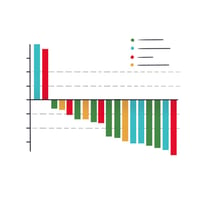The recent FDA approval of inavolisib for PIK3CA-mutated breast cancer offers valuable insights...
Immunotherapy Enrollment - The Critical Importance of Enrollment Analytics and Screening
Immunotherapy trials present unique enrollment challenges that can have life-threatening consequences if not handled properly. The potential for pre-existing conditions to escalate adverse events makes comprehensive screening not just best practice, but a patient safety imperative.
The Autoimmune Challenge
Immune checkpoint inhibitors and other immunotherapies can trigger or exacerbate autoimmune conditions. Patients with pre-existing diseases face significantly higher risks of serious adverse events that can be life-threatening.
A Cautionary Case Study: The Juno Therapeutics JCAR015 Tragedy
The consequences of incomplete immune system screening became tragically clear in Juno Therapeutics' Phase II ROCKET trial of JCAR015, a CAR-T cell therapy for acute lymphoblastic leukemia. Five young patients died from severe brain swelling caused by cytokine release syndrome, an extreme autoimmune-like reaction.
The Root Cause: Post-incident investigation revealed critical screening failures. The patients who died had identifiable risk factors that weren't assessed during enrollment:
- Elevated baseline IL-15 levels (a T-cell growth factor)
- Rapid T-cell expansion patterns within one week vs. the typical 12-14 days
- High inflammatory cytokine profiles that correlated with fatal outcomes
The FDA Response: Two clinical holds in 2016, followed by complete program termination in March 2017.
The Impact: A promising therapy was lost, competitors gained market advantage, and regulatory scrutiny affected the entire immunotherapy field.
Essential Screening Components
Comprehensive autoimmune screening must include:
- Complete autoimmune disease history (including historical diagnoses in remission)
- Current immunosuppressive medications that might interact with therapy
- Baseline inflammatory markers and cytokine profiles
- Prior immunotherapy exposure and responses
- Immune system profiling to identify predisposition to severe reactions
Why Screening Is More Challenging Than It Appears
- Hidden conditions: Patients may not recognize mild autoimmune symptoms
- Subclinical disease: Lab markers may indicate risk before clinical symptoms
- Immune system priming: Baseline cytokine profiles can predispose to catastrophic responses
Best Practices
Effective screening requires:
- Standardized questionnaires prompting comprehensive histories
- Laboratory panels testing autoimmune markers and cytokine profiles
- Specialist consultation for borderline cases
- Enhanced monitoring for higher-risk patients
- Clear intervention protocols for autoimmune adverse events
Learning from Tragedy
The JCAR015 case proves that seemingly healthy patients can harbor immune system predispositions making them vulnerable to life-threatening reactions. The patients who died weren't statistical outliers, they were more likely identifiable high-risk individuals whose immune systems were primed for catastrophic responses.
Better screening could have identified these patients, led to enhanced monitoring, and potentially prevented the fatal outcomes that ultimately killed the entire program.
Conclusion
In immunotherapy trials, thorough autoimmune and immune system screening isn't just good clinical practice—it's a patient safety imperative that can determine trial success or failure. The JCAR015 tragedy proves that when we fail to adequately screen for autoimmune predisposition, we risk not just individual patient safety, but the future of entire therapeutic programs.
The technology and knowledge exist to conduct comprehensive immune system profiling. The question is whether we have the commitment to implement these safeguards rigorously and ensure that promising immunotherapies reach patients safely.



